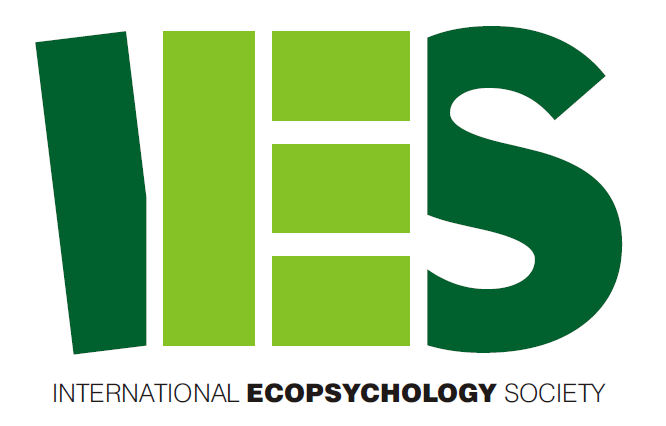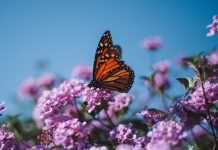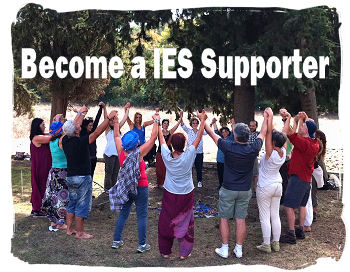Nestled in the centre of Zulu warrior territory is Hluhluwe-iMfolozi Nature Reserve said to be the oldest proclaimed reserve in Africa. This used to be the hunting ground used by King Shaka but has now transformed into a space that cradles the largest population of White Rhino in the world. Not only is this home of this iconic animal but it also flaunts 85 other species including the other big 5 and Nyala, Nile Crocodile, Hippo, Giraffe, African Wild Dog, Cheetah, Kudu, Impala, Bushpig, common Warthog, Hyena, Water Buck, Duiker, Blue Wildebeest, Jackal and others. There are also up to 340 species of bird found in the area.
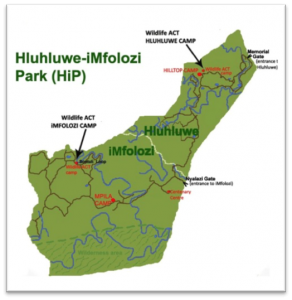
It was my first time going on a Wilderness Leadership program. We were a group of 8 people guided by two armed rangers travelling and sleeping in the wilderness guided by a few rules. The first and most important rule is to carry only what you need. Although this sounds like something that is easy, it goes against the grain of modern day living, which is characterized by accumulation, luxury, abundance and convenience. Although I halved what I initially intended to take on the trail I realized that even this was too much. As we curved around the hill, my bag hanging heavy on my back, reminding me of the burden I am on nature we saw a large family of elephants slowly moving through the open grassland. Although they are large mammals they moved slowly and lightly through the space. Baby elephants pulling on each other’s trunks with the matriarch powerfully leading the way. She was moving through the path fearlessly, yet gently, something we should all be doing.

Picture above: Carrying more than I need.
The second rule was to move quietly and in silence. This was probably the biggest challenge as I was wearing hiking pants that I realized made a huge amount of noise while walking. Eventually, I walked through the bush like an alien crab to avoid making so much noise. I could also hear my water bottle thumping around in my bag and every blade of grass crunching under my shoe was noticeable. Have modern humans lost their ability to be silent in order to dance to the rhythm of nature?
Our two guides operated in a different dimension to the group. They moved through the wilderness like feathers through the wind, they could hear every sound and identify its source. Every morning they would wake up early and sit still in a state of mindfulness connecting to the new day emerging. It looked like they were tuning their senses into a world and rhythm that many people have not and will never experience. Although we had no watches and no access to technology (except an old-fashioned camera), they were able to read the cycles of nature. One night the rangers were fast asleep and the first night watch was shining her torch to check for animals approaching our sleeping area. Even equipped with the light of a fire and a torch it was only the rangers who jumped up suddenly and were able to point in the dark to a hyena caressing the sides of the lake. They have incredible hearing and night vision. The universe certainly moves at a different speed depending on who you are.

The picture above: Elephant crossing the river with rhinos basking in the sun on the left.
The next rule was to leave no trace. That meant that our modern day conveniences of pasta in a plastic packet had to be eco-bricked and carried along until the end of the trail. It also meant a deep and disturbing realization of how disconnected we are from nature. Our food was all packed in toxic packaging burdened with a massive environmental impact, which often we don’t realize since this impact is indirect and often invisible. As I turned open my beautifully packaged soya milk to have with my vegan muesli, I wondered what my meal would have looked like should these conveniences disappear? Has it become impossible for modern humans to connect deeply to nature because we are disconnected from the food we eat?
We were not supposed to use any toilet paper that I always thought would be a harmless accompaniment to a wilderness experience. The invisible harm manifested as massively destructive. We were told how dung beetles scrape open the human excrement surfacing all buried toilet paper, which attracts hyenas. These hyenas then pick up diseases from our human excrement that could cause their death. So, even when we think some necessities of our modern lives cause little harm, in nature, they are toxic elements that could kill innocent animals.

The picture above: Washing pots with elephant poo and sand next to the river.
In the mornings we had to collect elephant dung and sand to wash our pots. Using something that often we frown upon, poo, to clean the pots in which we make our food was a mind-shifting experience. The purity of nature is captured in the wilderness and juxtaposed by modern day living.
We were not able to bath in the river as it is filled with crocodiles and hippos that will dismember you at any given moment if you get to close. We sat for hours one afternoon watching a hippo and an elephant play musical chairs in the river with the elephant taking a swim and later the hippo showing off a beautiful display of his magnificent mouth. Driven by the fear of the river we washed with a small cup of river water. It was humbling to realize how little water we actually need to keep clean. Water is a precious resource, especially in Africa. What was even more humbling was to wash while being watched by a group of baby baboons intrigued by our hygienic city routines.
The last rule was to enjoy every moment for what it was. There is a hidden deep pleasure in sitting for hours watching warthogs taking a mud bath and red ants using your clothes as a moving escape room. The moment was actually pieces of moments strung together by a feeling of peace and no burden. Although a lion could jump out at any moment and have me for breakfast I felt more relaxed than I feel in the safety and comfort of my own home. The synchronicity and flows in nature are meditative.
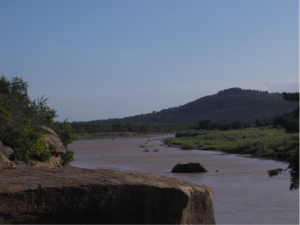
The picture above: Elephant swimming in the river with a hippo next to it.
Through this experience, there were moments I wondered what the true cost of connecting to nature was as we curved through the thorn bushes in the wild. My shoes were slamming down on the grass and vibrating through African soil. Even at our softest voices the Zebra drinking water far away perked their ears looking at us. Somehow it just felt like even with our best intention and effort we were disrupting the natural flow of the wild. One night our voices became celebratory around the campfire and like a thump of consciousness, a Buffalo snorted loudly close-by as if to say we are making a noise putting him at risk as he could not hear predators approaching.
Our ranger told stories of how humans placed the wild animals at risk during some of these trails. An elephant had to be killed because he charged a person on a trail similar to ours. The risk of the experience potentially causing an animal, in whose home we went, became a heavy burden. This burden and feeling of guilt for disrupting the flow of nature was easily lifted as our ranger communicated with the anti-poaching unit in the park. We were told that by being there and moving around we were making it more difficult for poachers to poach rhino in the park. We were, in some small way, helping protect rhinos from extreme suffering. After this magnificent experience, I realized that life is a cycle of costs and benefits and we need to balance the angle at which we operate our lives. All animals are sentient and all of them deserve protection, not just those in wild spaces. And as for our “connection” to nature, I am not sure if we can ever fully be connected to wild nature again.
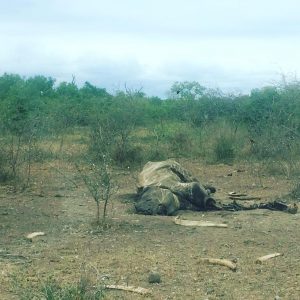
The picture above: A Rhino poached in the park for its horn. Witnessing the tragic loss of life, humans pushing a species into extinction.



